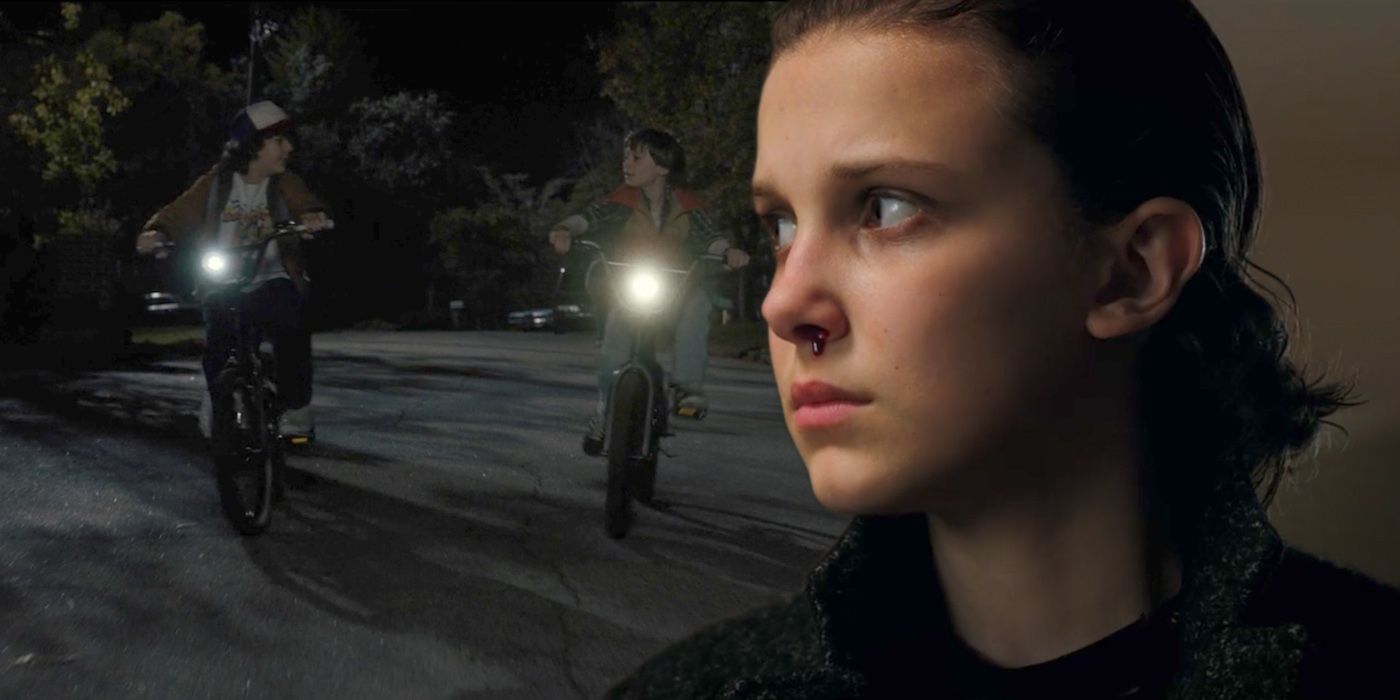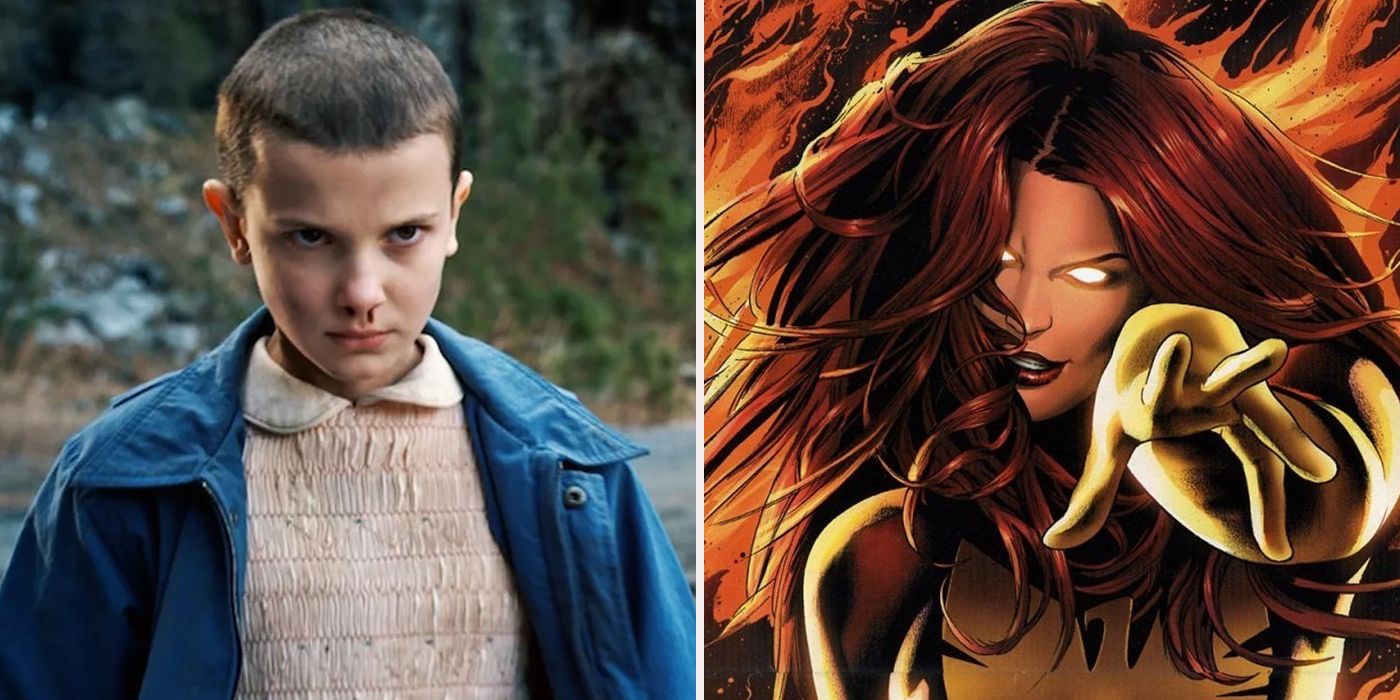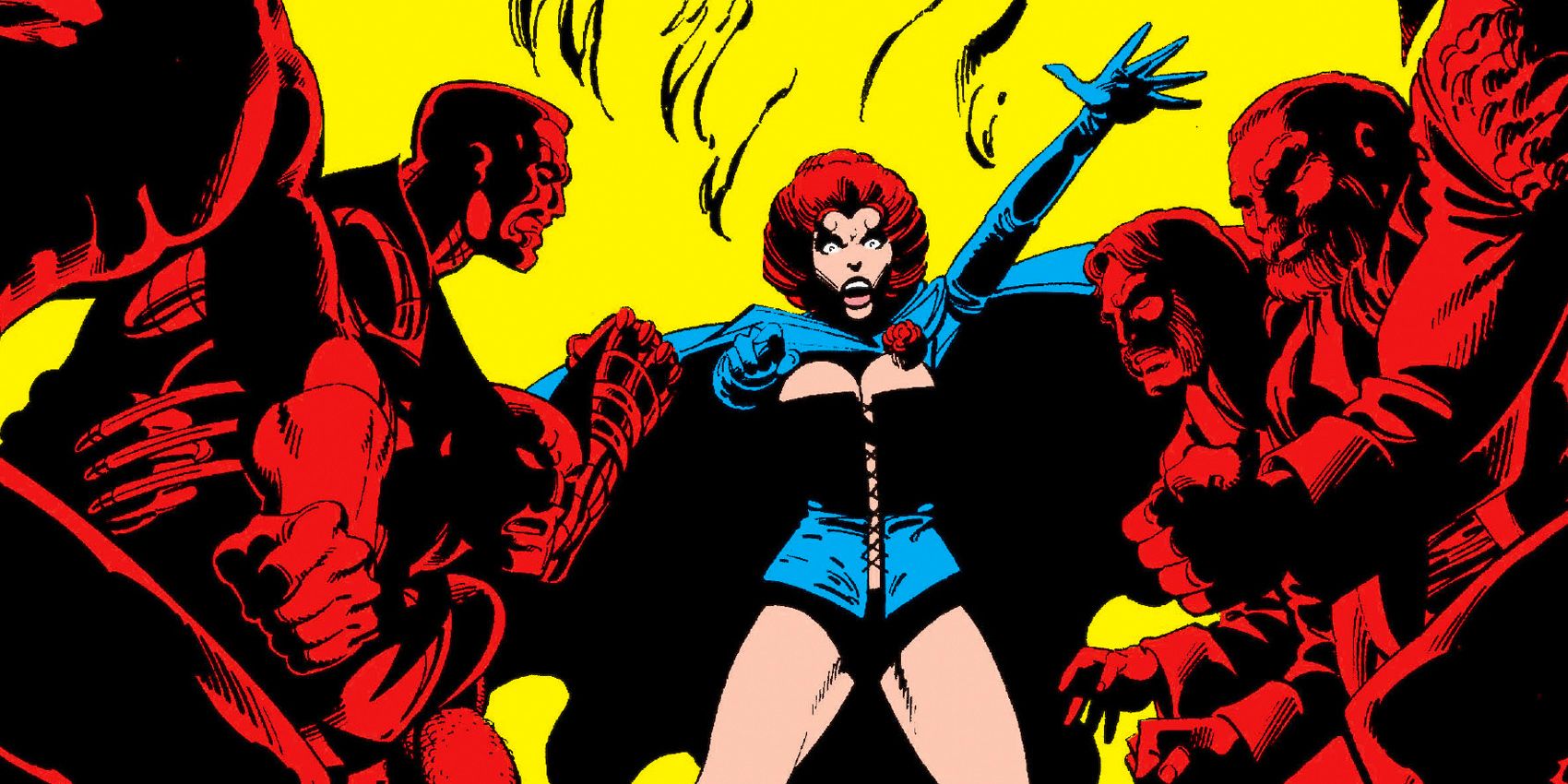Spoilers for Stranger Things Season 2.
-
The epic climax of Stranger Things Season 2 is one of the best moments of the entire show. Hardly surprising given the series has been foreshadowing it from the very start of Season 1.
It's the strangest thing to believe now, but The Duffer Brothers first pitched their genre mashup to Netflix as an anthology series. Thankfully, the streaming service convinced the pair to instead steer into expanding the scenario they'd created, reasoning (correctly) that audiences would fall in love with the children and want to spend more time with them. The creators then doubled-down, constructing a multi-season plan for Hawkins that, based on the ending of Season 2, they started seeding incredibly early on.
Related: Stranger Things Still Has A Timeline Problem
The newly-released nine-episode run came to its dramatic conclusion when Eleven, having returned to Hawkins after a soul-searching (and timeline-busting) trip to Chicago, closed the gate between our world and the Upside Down. This saw Jane use more power than had ever been seen in the show before, calling upon her tortured past with such intensity she actually started to levitate. It was an epic culmination to the character's season-long arc of finding her place in the world, but also, fitting of Stranger Things love of 1980s nostalgia, hearkened back to one of pop culture's greatest telepaths.
There's always been an element of the X-Men to Eleven. The experimentation pre-Season 1 lived out classic mutant fears and Season 2 had her faced with the same ethical dilemma that defines Magneto and Professor X - kill or forgive - but the real parallels have been specifically to Jean Grey: they have a near-identical powerset of unclear potential. The Season 2 climax goes more involved than that, though; with the bright orange glow of the portal and her newly-discovered floating powers, the gate-closing sequence intentionally brings to mind The Dark Phoenix Saga.
A game-changing arc for the Merry Mutants - Jean becomes possessed by an intergalactic force that amplifies her powers and turns her into a genocidal monster - the story is so iconic it's about to get its second big screen adaptation next year and is evidently providing some inspiration for Eleven, even if just on a visual level. Yes, some of the imagery could also be attributed to Firestarter (a Stephen King adaptation that had already got a hat-tip with the Hawkins lab experiments in Season 1), but considering everything Eleven's been through over the past two years, she's really closer to Jean than Charlie - especially when you factor in a very crucial early reference.
Season 1 opened with the gang playing a prophetic game of Dungeons and Dragons that broadly outlined Will being captured by the Demogorgon, although it's now clear the really smart foreshadowing came shortly after. As they cycled home, Will won a comic book off Dustin in a bike race. The comic he chose? X-Men #134. No random pick on behald of the writers, this issue was set right into the middle of The Dark Phoenix Saga and featured the first actual appearance of the fiery force. Even before the first synth-y title card, Eleven's Jean Grey destiny was being teased.
Of course, at the time, the reference was taken as a general clue to Eleven's powers, but given the intense ending of Season 2 it's clearly more involved than that. She really is growing into a position of power similar to Dark Phoenix. And the signs were always there.
That this was in the very first episode means we're probably not at the end of the endpoint foreshadowing either - could this be a very early suggestion that Eleven's powers will eventually consume her and make her as dangerous as anything in the Upside Down? There's no way of knowing yet, but if it happens, don't say the Duffers didn't warn you.



